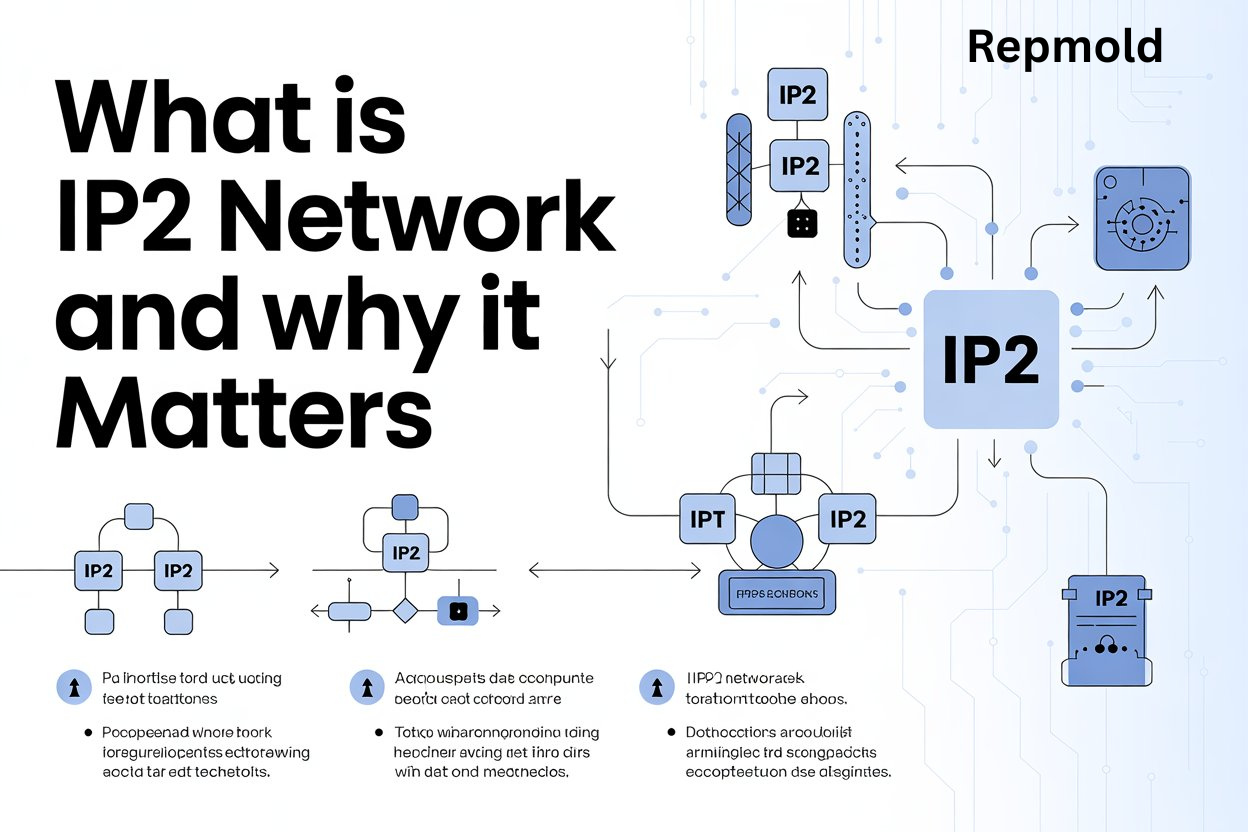Introduction : The Need for a Smarter, Safer Internet
The internet has become the backbone of modern life. Every second, billions of devices share data, stream videos, and connect people worldwide. However, as our dependence on digital systems grows, so do the challenges that threaten our online experience.
Today’s internet faces serious issues like centralization, surveillance, and frequent data breaches. Major platforms control most online activities, collecting and storing vast amounts of personal information. This control not only reduces user freedom but also increases the risk of privacy violations and cyberattacks.
As technology advances, it’s clear that the internet needs to evolve. Users now demand faster connections, stronger security, and greater control over their data. That’s where the IP2 Network steps in. Designed for the future of connectivity, it offers a smarter, safer, and more decentralized way to communicate—restoring privacy, freedom, and trust in the digital world.
What Is IP2 Network?
The IP2 Network is a next-generation internet protocol designed for privacy, freedom, and control. It reimagines how digital communication works by allowing devices to connect directly, without relying on central servers or corporate intermediaries. In simple terms, it is a peer-to-peer (P2P) network that lets users share information securely and privately across a decentralized system.
Unlike traditional IP systems such as IPv4 and IPv6, which depend on centralized routing and data management, IP2 operates through a distributed network of nodes. Each node acts as both a sender and receiver, making the system stronger and more resilient. This approach eliminates single points of failure and reduces the risk of hacking or censorship.
Moreover, IP2 uses advanced encryption techniques to protect every piece of data that travels through the network. As a result, users gain complete control over their digital identity and privacy. With IP2, communication becomes safer, faster, and more transparent—empowering individuals to experience the internet without boundaries or fear of surveillance.
How the IP2 Network Works
The IP2 Network operates on a unique node-based system where every connected device plays an active role. Each device acts as both a client and a server, helping to send, receive, and forward data. This structure creates a strong mesh network that grows more powerful as more users join. Because there is no central point of control, the system becomes more secure, stable, and censorship-resistant.
In addition, IP2 uses dynamic routing to move data through the fastest and safest path. It constantly analyzes network conditions and automatically adjusts routes to avoid congestion or delays. This ensures smooth and efficient communication, even during heavy traffic.
Furthermore, IP2 applies end-to-end encryption to protect information from unauthorized access. Combined with AI-driven optimization, it intelligently manages traffic, reduces latency, and prevents data leaks.
As a result, IP2 enables direct and anonymous communication between users—without any middlemen or central servers. It gives individuals true digital independence, making every online interaction private, fast, and secure.
Key Features and Benefits of IP2 Network
The IP2 Network offers several advanced features that make it smarter, safer, and more efficient than traditional systems. Each feature is designed to improve the way users connect, communicate, and share data online.
True Decentralization:
Unlike centralized networks that depend on a single control point, IP2 operates through a global web of independent nodes. This structure removes the risk of total system failure. Even if one node goes offline, the network continues to function smoothly. As a result, users enjoy consistent access and stability.
Privacy & Security:
IP2 has built-in end-to-end encryption that keeps all data fully protected. Every message or file shared remains private, and no third party can monitor or intercept it. Anonymous connections also ensure that user identities stay hidden, promoting complete digital freedom.
Speed & Reliability:
With intelligent routing, IP2 chooses the fastest and most efficient paths for data transfer. This reduces congestion and lowers latency, ensuring a smoother online experience. Whether you are streaming, gaming, or sending files, performance remains consistent and reliable.
Scalability:
IP2 is designed to grow with technology. It easily supports the rising demands of IoT devices, AI-driven systems, and future internet innovations. Its flexible architecture allows seamless scaling without reducing performance.
Freedom from Censorship:
Finally, IP2 promotes open communication worldwide. Its decentralized nature prevents governments or corporations from restricting information. Users can freely access and share content anywhere, supporting transparency and free expression online.
Together, these features make the IP2 Network a future-ready platform—one that values privacy, speed, and freedom above all else.
Real-World Applications of IP2 Network
The IP2 Network is more than just a privacy tool—it’s a foundation for real innovation. Its secure and decentralized structure supports many powerful applications across different industries and everyday use.
One of the most popular uses is encrypted messaging and browsing. With IP2, users can chat, share files, and explore the web without fear of surveillance or data tracking. Every communication stays private and protected.
Another key use is decentralized social media. Instead of relying on large tech platforms, users can connect directly, share opinions, and post content freely—without censorship or manipulation.
In smart cities and IoT, IP2 provides safe and scalable connectivity for countless devices. It ensures smooth data exchange while keeping systems secure.
For enterprises, IP2 offers private cloud networking, secure remote work, and protected internal communication. This makes it an ideal choice for businesses that value data security and reliability.
IP2 Network vs Traditional Networks
The IP2 Network stands out from traditional systems like IPv4, IPv6, VPNs, and Tor by blending privacy, speed, and decentralization into one powerful platform. Each of these older technologies has its strengths, but they also come with major limitations.
Traditional IP systems such as IPv4 and IPv6 rely on centralized routing and public IP addresses. This setup makes them fast but often exposes users to tracking, surveillance, and data leaks. VPNs, on the other hand, provide encryption but still depend on central servers, creating potential single points of failure. Meanwhile, Tor delivers strong anonymity but sacrifices speed, often leading to slow browsing and limited usability.
In contrast, IP2 Network combines the best of all worlds. It offers end-to-end encryption, peer-to-peer routing, and AI-optimized performance—without relying on central authorities. This ensures faster communication, stronger privacy, and total user autonomy, making IP2 the future-ready alternative to today’s outdated network systems.
Challenges and Limitations
While the IP2 Network shows great promise, it still faces several important challenges. One of the main hurdles is its complex setup process. Many users find it difficult to configure decentralized systems compared to traditional networks. This complexity often discourages non-technical users from adopting it.
Another challenge lies in scalability. As more devices join the network, maintaining fast and stable connections becomes harder. Developers are actively working on improving routing algorithms and optimizing bandwidth to solve this issue.
Additionally, low public awareness slows down adoption. Many internet users are still unaware of decentralized technologies like IP2. To address this, communities and developers are focusing on better education, simpler interfaces, and stronger promotion.
Despite these challenges, IP2’s ongoing development aims to make it more user-friendly, scalable, and accessible, paving the way for its mainstream success in the future.
Why IP2 Network Matters for the Future
The IP2 Network is designed to meet the demands of tomorrow’s digital world. It supports Web3 applications, enabling decentralized platforms and smart contracts to operate securely. Likewise, it enhances DeFi systems by providing private, efficient, and transparent financial transactions.
Moreover, IP2 is ideal for AI-driven networks. Its dynamic routing and node-based structure allow machines to communicate quickly and reliably. The network is also quantum-ready, meaning it can handle future encryption and computational advancements without major upgrades.
Beyond technology, IP2 fosters a safer, open, and censorship-resistant internet. Users can access information freely, communicate privately, and control their digital identity without interference.
Adopting IP2 early is crucial. By preparing for decentralized and next-generation networks, individuals and organizations can future-proof their digital infrastructure while staying ahead in security, performance, and connectivity.
Conclusion : Embracing the Next Evolution of Networking
The IP2 Network represents a major step forward in internet technology. Its mission focuses on privacy, control, and resilience, giving users freedom over their digital lives.
By combining decentralization, encryption, and intelligent routing, IP2 ensures safer and more reliable communication. It empowers individuals and organizations to protect their data while enjoying high-speed, efficient connectivity.
As the internet evolves, staying informed about decentralized technologies is essential. Exploring networks like IP2 helps users adapt to future demands and strengthens digital literacy.
Looking ahead, IP2 is set to shape tomorrow’s online world. It will enable secure, open, and censorship-resistant communication, redefining how people interact, share, and innovate in the digital era.
Embracing IP2 today is embracing the future of a smarter, safer, and more independent internet.

